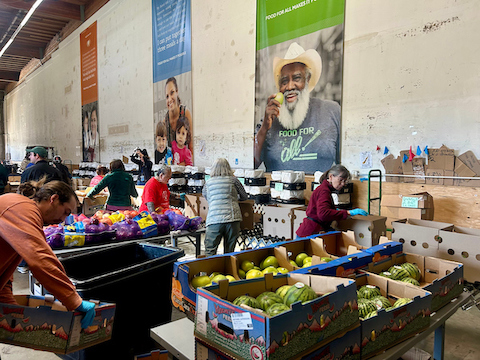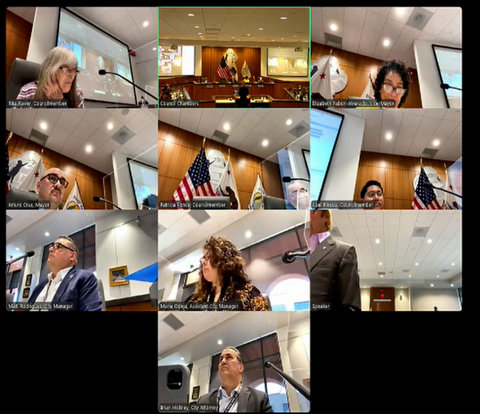
15 Aug Sanctuary City Status for Antioch Still in Limbo

Antioch City Council on Tuesday approved a list of items it wants to address in the near future, including a potential sanctuary city policy. (Screenshot captured by Samantha Kennedy / The CC Pulse)
By Samantha Kennedy
Antioch officials are keeping the possibility of becoming a sanctuary city alive after a majority of council members agreed to consider it at a future meeting.
The Antioch City Council on Tuesday OK’d a slew of items that it wants to pursue at near future meetings — including the sanctuary city designation that has sat for months awaiting consideration since President Donald Trump was elected in November.
“I know that the Police Department did put out a statement, but I still would like the city to adopt a resolution,” council member Tamisha Torres-Walker said at Tuesday’s meeting.
The city has been later than several other Bay Area cities in adopting a policy, but is in line with nearby cities. Neighboring Pittsburg, some of whose current city council members have expressed support for immigrant communities following Trump’s increased immigration enforcement, refused to adopt a policy during Trump’s first term out of fear it could set the city up to lose federal funding.
Under state law and department policy, the Antioch Police Department does not assist in federal immigration enforcement, it said in a statement earlier this year. SB 54, which went into effect in 2018, limits how law enforcement agencies across the state can cooperate with federal immigration authorities.
“The Antioch Police Department is committed to serving and protecting all members of our community, regardless of immigration status,” the department said. “We do NOT participate in ICE raids or Federal immigration enforcement.”
From the dais, Antioch’s push for the sanctuary status began when Torres-Walker was elected in 2020. Torres-Walker — who former council member and Antioch Herald publisher Allen Payton said was the “first and only candidate ever” to propose the policy at the time — requested it be considered last year. Former Mayor Lamar Hernandez-Thorpe also requested that such a policy be considered.
During the 30 seconds where council members discussed the policy on Tuesday, members were mostly silent on bringing it back for consideration. But Torres-Walker managed to get a “yes” from council member Monica Wilson and a more hesitant “it’s fine” from council member Don Freitas.
Mayor Ron Bernal took a more definitive position.
“I don’t think we need to,” he said.
Bernal and other members did not say why they voted one way or the other after being advised during a previous item by interim City Attorney Derek Cole that they were not supposed to discuss the merits of a potential agenda item.
But council member Louie Rocha told First Voice Media, a program of KPFA, at the beginning of Trump’s presidency that he wanted to see the city do something similar to what the Antioch Unified School District did in communicating its stance on immigration enforcement.
“I’d like to see our city stand up for our residents who are part of our diverse community,” Rocha, a former principal in the district, told First Voice Media. “But I do think education, knowledge is most important at this time.”
AUSD joined other districts this year in reaffirming its support for all students, no matter their immigration status, and restricting its cooperation with federal immigration authorities. The district first passed the policy, known as the “Safe Haven Resolution,” in 2017 during Trump’s first term.
Torres-Walker told that news organization in the same interview that moving forward didn’t necessarily mean passing a sanctuary city policy.
“These ordinances don’t have a lot of power,” said Torres-Walker, who mentioned that it would only outline how the city is not cooperating with federal immigration authorities. “Maybe we don’t need a resolution or an ordinance to do that; we could just be decent human beings and say, ‘We don’t want our policing resources — already strapped by [the investigation related to police misconduct] — to pivot to locking up and separating families.’ ”






No Comments